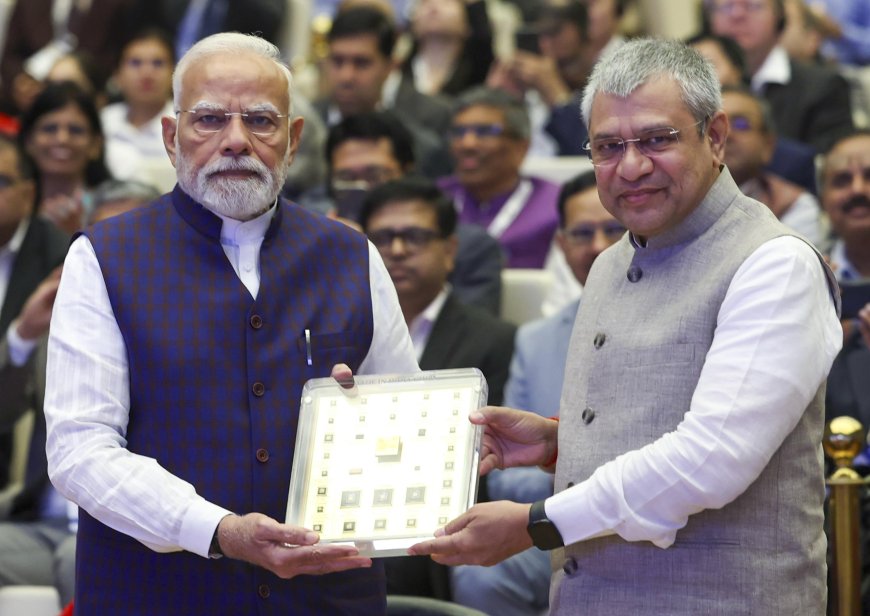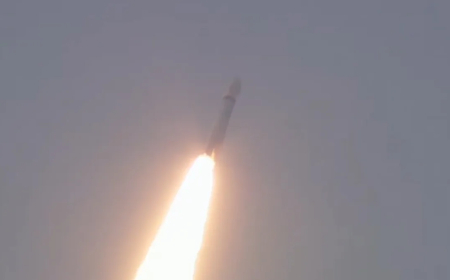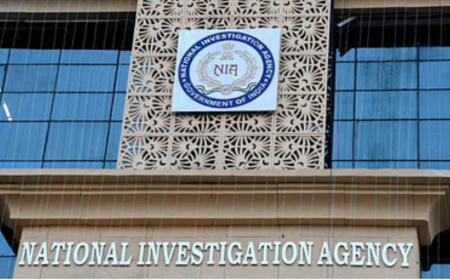India's first indigenous space processor 'Vikram 3201' launched, Rocket and satellite missions will be stronger
At Semicon India 2025, IT Minister Ashwini Vaishnaw launched ISRO’s Vikram 3201, a 32-bit space-grade microprocessor developed with SCL Chandigarh. Tested in PSLV missions, it ensures reliability in extreme space conditions and marks a historic step towards India’s semiconductor self-reliance.

At the Semicon India 2025 conference, Electronics and IT Minister Ashwini Vaishnav introduced 'Vikram 3201' in front of Prime Minister Narendra Modi. It is being described as a historic step towards India's semiconductor self-reliance. This processor has been developed in collaboration with the Indian Space Research Organization (ISRO) and the Chandigarh-based Semiconductor Laboratory (SCL).
Why is Vikram 3201 special?
It is a 32-bit microprocessor, specially designed to work in the harsh conditions of space missions. Its ability to withstand temperatures ranging from -55 ° C to +125 ° C makes it extremely strong. Its job is to handle navigation, control and mission management in rockets and launch vehicles. It has been designed according to military-grade standards so that it continues to work even in difficult conditions like radiation and vibration.
Earlier, ISRO was using 'Vikram 1601' (16-bit processor) since 2009. Now 'Vikram 3201' not only brings 32-bit architecture, but it includes many major upgrades like 64-bit floating-point operation, support for Ada programming language and on-chip 1553B bus interface for better communication. It has been made in SCL's Chandigarh unit with 180-nanometer CMOS technology, which is reliable for aerospace applications.
Space test has already been done
'Vikram 3201' has already been tested in PSLV-C60 mission. It successfully operated the mission management computer of PSLV Orbital Experimental Module (POEM-4). After this success, ISRO is now going to adopt it widely in its upcoming launch vehicles.
ISRO also launched another processor named 'Kalpana 3201' along with 'Vikram 3201' in March 2025 this year. It is based on 32-bit SPARC V8 RISC architecture and supports open-source toolchain. Apart from this, ISRO has also introduced four more indigenous electronic devices, including two Reconfigurable Data Acquisition Systems, a Relay Driver IC and a Multi-Channel Low Drop-out Regulator IC. All these devices will reduce India's import dependence.
Big step towards self-reliant India
Space-grade processors are not usually available in the market and have to be imported from abroad. With 'Vikram 3201', India has achieved self-sufficiency in this field. This will reduce supply chain bottlenecks and import dependence. ISRO has also developed a complete software ecosystem for this, which includes ADA compilers, assemblers, linkers, simulators and development environments. According to ISRO, C compiler will also be developed soon.
Focus on semiconductors in Semicon conference
Along with the launch of processors in the three-day Semicon India conference, the government informed that 5 new semiconductor units are being built in the country. Under the Design-Linked Incentive Scheme, India is now moving towards making a strong position in the global supply chain.
What's Your Reaction?
 Like
0
Like
0
 Dislike
0
Dislike
0
 Love
0
Love
0
 Funny
0
Funny
0
 Angry
0
Angry
0
 Sad
0
Sad
0
 Wow
0
Wow
0











































